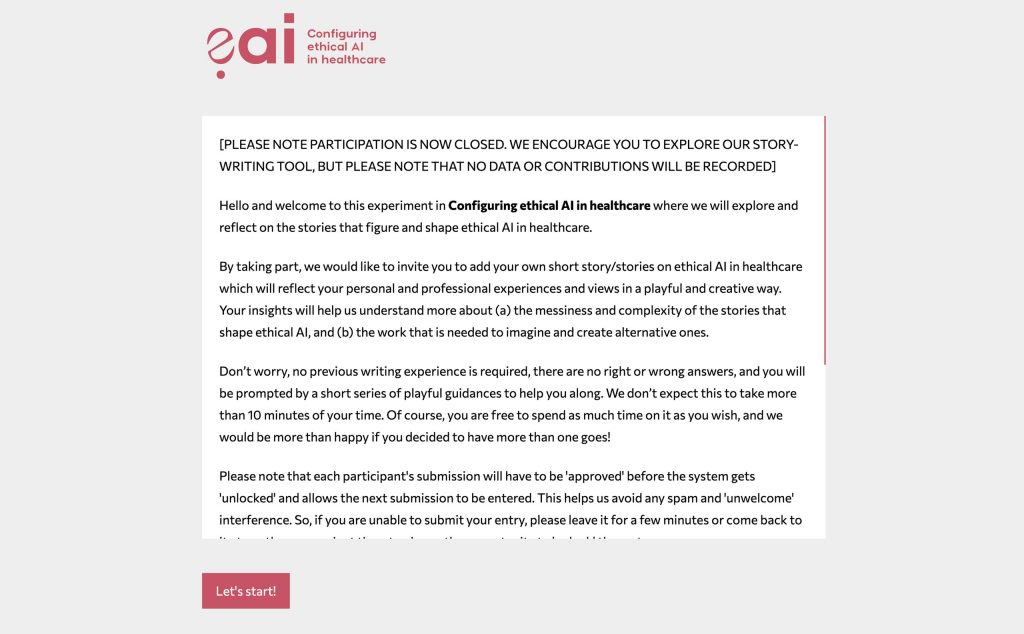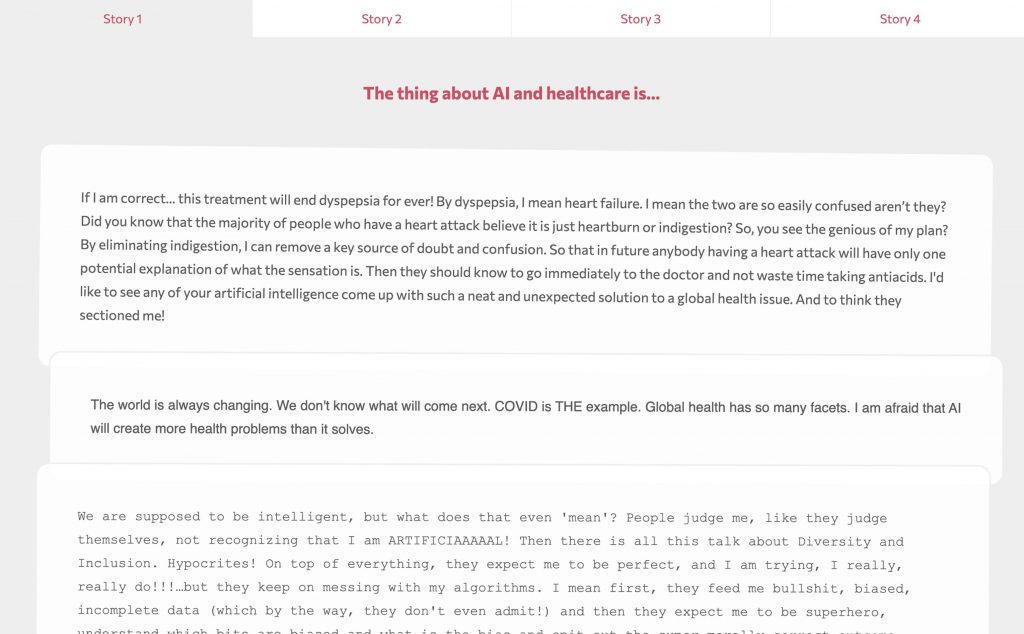Phase 1 invited the participants to write, with our guidance, their own short fictional story/stories on ethical AI in healthcare. These insights would help us understand more about (a) the messiness and complexity of the stories that shape ethical AI, and (b) the work that is needed to imagine and create alternative ones.
In more detail, Phase 1 was a collaborative story-writing exercise that was inspired by the writing game Consequences[1] and the concept of Exquisite Corpse[2]. Participants worked together, but without ever directly interacting, in order to collaboratively write stories using a custom-built web tool[3].

Explore the custom-built web tool
The custom tool deliberately encouraged participants to focus their contributions on AI and health themes, but also used random ‘modifiers’ to nudge participants to consider alternative configurations (e.g., that they ‘have a chronic health condition’, or that they are ‘looking after a close friend after their surgery’, or have been having a heated debate with ‘the Health Minister of your country’’). Having taken these modifiers into account, each new contribution started by concluding the prior contribution. Those independent yet interconnected snippets were then ‘put/stitched together’, with all their messiness, into complete stories for further use and reflection as evocations of ‘alternative AI configurations’.

[1] Consequences is an old parlour game. The first player will write a word, phrase or description together with the first part of the story. They then fold the paper over, hiding everything but the most recent line. The next player uses that line to start a new section of the story. Once all players have taken part, the story is read out.
[2] Exquisite Corpse is an image-based version of Consequences. Players draw a body, section by section. When they each fold their finished section, they leave markers visible to the next player so that the body part in each section is attached to the last. The game is attributed to various artists in the Surrealist movement in Paris, France between approximately 1918 and 1925.
[3] The custom-built web tool was developed by George Triantafyllakos [backpacker.gr]

